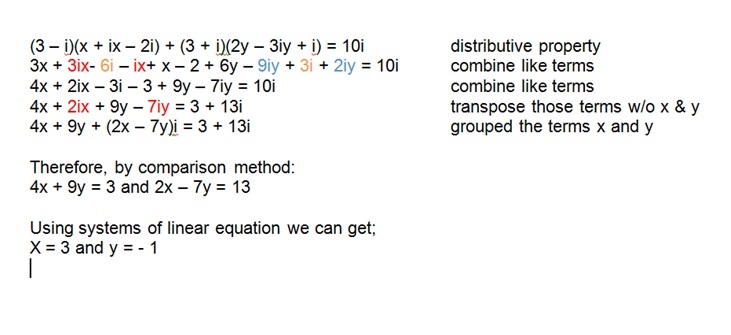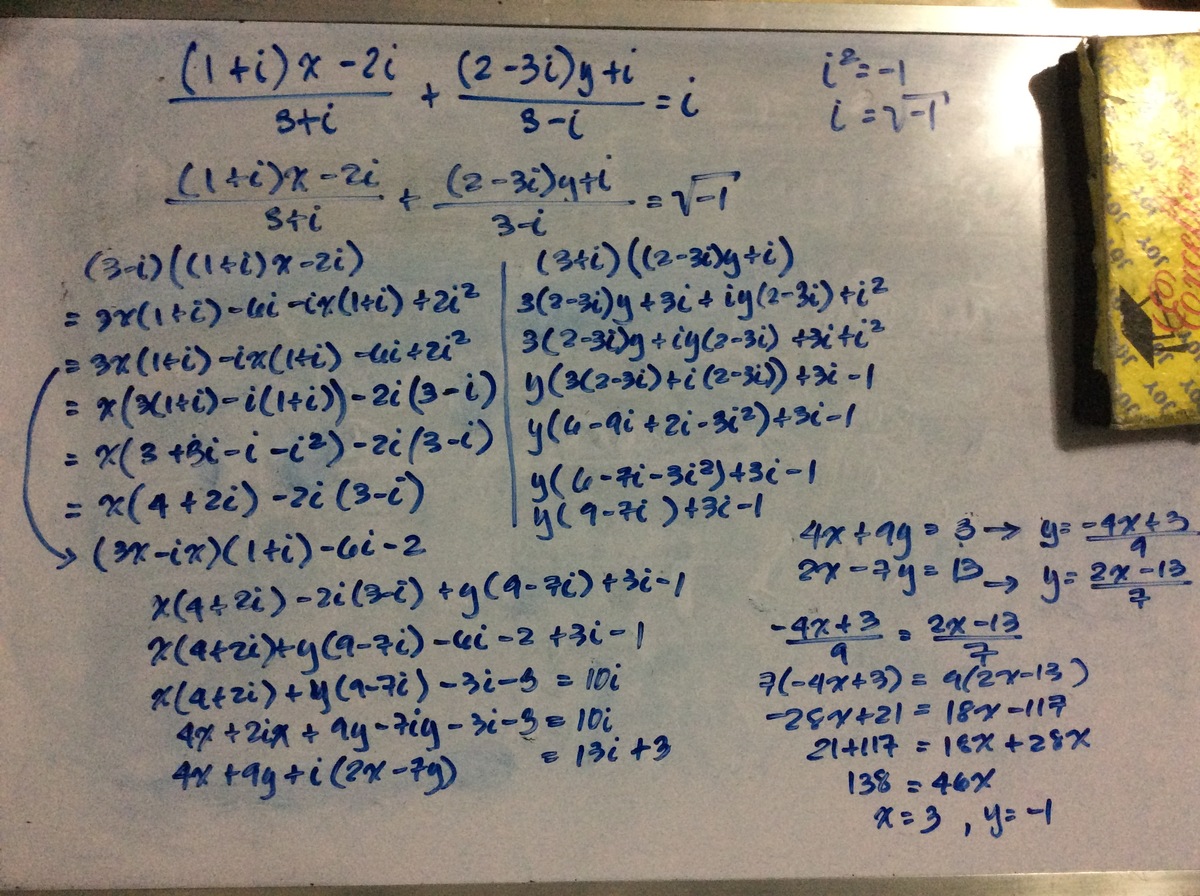Cunning Complex 6
Find the sum of real values of x and y for which the following equation is satisfied:
3 + i ( 1 + i ) x − 2 i + 3 − i ( 2 − 3 i ) y + i = i .
This problem is part of a set .
The answer is 2.00.
This section requires Javascript.
You are seeing this because something didn't load right. We suggest you, (a) try
refreshing the page, (b) enabling javascript if it is disabled on your browser and,
finally, (c)
loading the
non-javascript version of this page
. We're sorry about the hassle.
4 solutions
L H S = 3 + i ( 1 + i ) x − 2 i + 3 − i ( 2 − 3 i ) y + i
= 1 0 [ ( 1 + i ) x − 2 i ] ( 3 − i ) + 1 0 [ ( 2 − 3 i ) y + i ] ( 3 − i )
= 5 2 x + 5 i x − 5 1 − 5 3 i + 1 0 3 i − 1 0 7 y i + 1 0 9 y − 1 0 1
= i ( 5 x − 1 0 7 y − 1 0 3 ) + ( 5 2 x + 1 0 9 y − 1 0 3 ) = 1 i + 0
As two complex numbers are equal if and only if their real parts are equal and their imaginary parts are also equal, we have:
⎩ ⎪ ⎨ ⎪ ⎧ 5 x − 1 0 7 y − 1 0 3 = 1 5 2 x + 1 0 9 y − 1 0 3 = 0
⇔ { x = 3 y = − 1
Hence, the sum of real values of x , y is 2
@ Tín Phạm Nguyễn Nice solution for a really overrated problem
Log in to reply
I can't imagine this problem being worth 400 points!
Is there a better solution other than putting x=a+ib and so for y...
see my above solution.. hope you will like it :D

